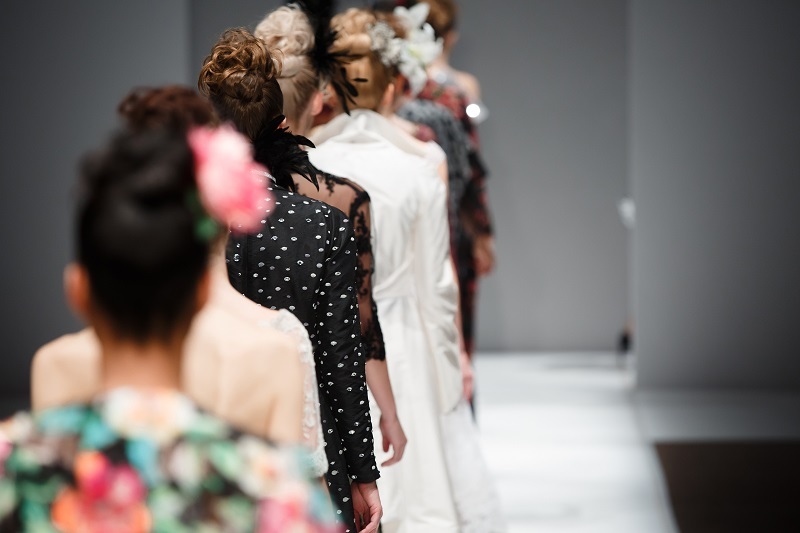What Does the Language of Your Birth Flower Say About You
Posted on 25/08/2025
What Does the Language of Your Birth Flower Say About You?
Flowers have long been more than just pretty additions to our gardens or bouquets. Across cultures and centuries, each blossom has carried its own unique symbolism, giving rise to the enchanting concept of "the language of flowers." But what does your birth flower say about who you are? In this comprehensive article, we'll unravel the secrets hidden in the petals of your birth month's bloom, exploring their meanings, history, and what they reveal about your personality.
The Historical Language of Flowers: Floriography
The art of conveying messages with flowers is called floriography. In the Victorian era, when direct expression was often discouraged, people communicated their feelings and intentions through carefully chosen bouquets. Each type of flower--and sometimes even its color--carried a specific meaning.
Your birth flower is linked not only to the month you were born but also to a specific set of attributes and emotions. Understanding the language of birth flowers can add depth to your self-knowledge and help you choose thoughtful gifts for friends and family.

Birth Flowers by Month and What They Symbolize
Let's dive into what the language of your birth flower says about you by exploring the blooms tied to each month, their symbolism, and personality traits they hint at:
January - Carnation & Snowdrop
-
Carnation:
- Symbolism: Fascination, distinction, and love.
- Personality Traits: If the carnation graces your birth month, you likely possess a strong will, deep affection for loved ones, and steadfast values. Carnation people are often described as loyal and charming.
-
Snowdrop:
- Symbolism: Hope and rebirth.
- Personality Traits: Snowdrop individuals are resilient and gentle, often providing hope and optimism to those around them.
February - Violet & Primrose
-
Violet:
- Symbolism: Humility, faithfulness, modesty.
- Personality Traits: Those born with violet as their birth flower are creative, wise, and quietly influential. Modesty and loyalty are your hallmark traits.
-
Primrose:
- Symbolism: Young love, patience.
- Personality Traits: Primrose individuals are gentle, caring, and sensitive, expressing affection in subtle ways.
March - Daffodil
-
Daffodil:
- Symbolism: New beginnings, rebirth, happiness.
- Personality Traits: If daffodils represent your month, you're optimistic, hopeful, and generous by nature. You inspire others with your upbeat energy.
April - Daisy & Sweet Pea
-
Daisy:
- Symbolism: Innocence, purity, new beginnings.
- Personality Traits: Daisy people are openhearted, positive, and youthful in spirit, always embracing life's adventures.
-
Sweet Pea:
- Symbolism: Blissful pleasure, gratitude.
- Personality Traits: Those with sweet pea as their birth flower value sincere friendships and are known for their charisma and sociability.
May - Lily of the Valley & Hawthorn
-
Lily of the Valley:
- Symbolism: Sweetness, humility, the return of happiness.
- Personality Traits: If this delicate flower is yours, you bring comfort and happiness to those around you through your gentle and nurturing nature.
-
Hawthorn:
- Symbolism: Hope and supreme happiness.
- Personality Traits: Hawthorn people thrive in community, spreading joy and good fortune wherever they go.
June - Rose & Honeysuckle
-
Rose:
- Symbolism: Love, beauty, balance.
- Personality Traits: June's birth flower is the classic rose, suggesting a passionate, loving, and balanced personality. You are both strong and gentle.
-
Honeysuckle:
- Symbolism: Devotion and admiration.
- Personality Traits: Honeysuckle individuals are loyal and steadfast, forming deep connections and lasting friendships.
July - Larkspur & Water Lily
-
Larkspur:
- Symbolism: Positivity, dignity, grace.
- Personality Traits: With larkspur, you are likely to be lively, quick-witted, and open-hearted, bringing joy to those around you.
-
Water Lily:
- Symbolism: Enlightenment, purity.
- Personality Traits: Water lily people possess an inner sense of peace and are often sources of wisdom and calm.
August - Gladiolus & Poppy
-
Gladiolus:
- Symbolism: Strength, integrity, sincerity.
- Personality Traits: Gladiolus indicates a strong will, moral fortitude, and unmatched determination.
-
Poppy:
- Symbolism: Imagination, remembrance.
- Personality Traits: Poppy people are creative dreamers and deep thinkers, often inspiring others with their unique perspective.
September - Aster & Morning Glory
-
Aster:
- Symbolism: Wisdom, love, faith.
- Personality Traits: If aster is your flower, you are devoted, wise, and exude a graceful charm that draws people in.
-
Morning Glory:
- Symbolism: Affection, the fleeting nature of life.
- Personality Traits: Morning glory individuals cherish each day and make the most of every moment, often motivating those around them.
October - Marigold & Cosmos
-
Marigold:
- Symbolism: Passion, creativity, warmth.
- Personality Traits: Marigold people bring color and light to their surroundings, displaying creativity and courage in all they do.
-
Cosmos:
- Symbolism: Harmony, order, peace.
- Personality Traits: If cosmos is your birth flower, you're often diplomatic, harmonious, and valued for your calming influence.
November - Chrysanthemum
-
Chrysanthemum:
- Symbolism: Longevity, joy, loyalty.
- Personality Traits: Those born with this bloom are optimistic and resilient, able to withstand challenges and always bringing sunshine into others' lives.
December - Narcissus & Holly
-
Narcissus:
- Symbolism: Hope, prosperity, rebirth.
- Personality Traits: Narcissus individuals are full of hope and optimism, often inspiring those around them during difficult times.
-
Holly:
- Symbolism: Protection and defense.
- Personality Traits: Holly people are protective and courageous, always ready to stand up for others.
The Science and Psychology Behind Birth Flowers
While birth flowers hold deep cultural and traditional significance, there is also a psychological component to their symbolism. Psychologists agree that people are often influenced by the symbols and meanings associated with their birth month or flower, leading to the development and reinforcement of the traits these flowers represent.
- Self-Identity: Knowing the symbolism of your birth flower can boost self-esteem and provide a sense of belonging to your birth month's community.
- Gift-Giving: Selecting a flower based on someone's birth month is a thoughtful gesture that shows consideration for the recipient's personality.
- Mindfulness: The act of learning about and appreciating the meaning of your birth flower encourages mindfulness and connects you more deeply to both nature and tradition.
How to Use the Language of Your Birth Flower in Modern Life
The symbolic language of birth flowers endures to this day, influencing everything from birthday cards to tattoos, jewelry, and home decor. Here are some creative ways you can celebrate your birth flower:
- Bouquets & Arrangements: Incorporate your birth flower in floral gifts or home arrangements to attract positive energy and convey your unique message.
- Personal Accessories: Wear birth flower pendants, brooches, or charms as an expression of identity.
- Art & Tattoos: Tattoo or paint your birth flower as a daily reminder of the attributes and energies you wish to embody.
- Celebrations & Events: Make your birth flower the theme of milestone events, such as weddings or birthday parties, to create a meaningful atmosphere.

Interesting Facts & Trivia About Birth Flowers
- Not all cultures agree: Some continents or regions assign different flowers to months, or celebrate indigenous blooms.
- Multiple flowers: Some months have more than one birth flower, giving you a choice in symbolism.
- Language of color: The color of your birth flower can add another layer to the meaning--red roses communicate love, while white stand for innocence.
- Medicinal uses: Many birth flowers have been used in herbal medicine, such as calendula (marigold) for skin care.
- Famous fans: Artists, writers, and monarchs have often identified with their birth flowers for inspiration.
Why Do Birth Flowers Matter?
Your birth flower's language is more than a charming tradition. It connects you to the rhythm of the year, nature's cycles, and the rich symbolism that human beings have woven into the fabric of daily life. Embracing your birth flower can add layers of meaning to your celebrations and relationships, and serve as a beautiful, living reminder of your personal strengths and qualities.
Frequently Asked Questions About Birth Flowers and Their Meanings
- Can I have more than one birth flower?
Yes! Some months feature two or more flowers, each offering unique meanings and options for self-expression. - Is the birth flower tradition worldwide?
While the Western tradition is the most well-known, many cultures have their own beloved symbolic blossoms. - How can I find out more about my birth flower?
Florists, botanical websites, and even cultural history books are great places to start exploring your flower's deeper meaning. - Can birth flower meanings help choose gifts?
Absolutely! Flowers chosen with intent based on the recipient's birth month are naturally meaningful and personal.
Conclusion: Embrace the Language of Your Birth Flower
The language of your birth flower offers a fascinating glimpse into both the tapestry of human culture and the depths of your own personality. Whether you're gifting, decorating, or simply reflecting, allow the symbolism and history of your birth flower to inspire you.
Next time you see a birthday flower in full bloom, remember: it may be saying more about you than you ever imagined.
Explore your birth flower's unique story, and let its beauty and meaning bloom in your life!
Latest Posts
Peony Flowers: The Symbolism and Meanings of Their Rich Colors
What Does the Language of Your Birth Flower Say About You
In the World of Sunflowers: 8 Facts to Excite Your Curiosity





